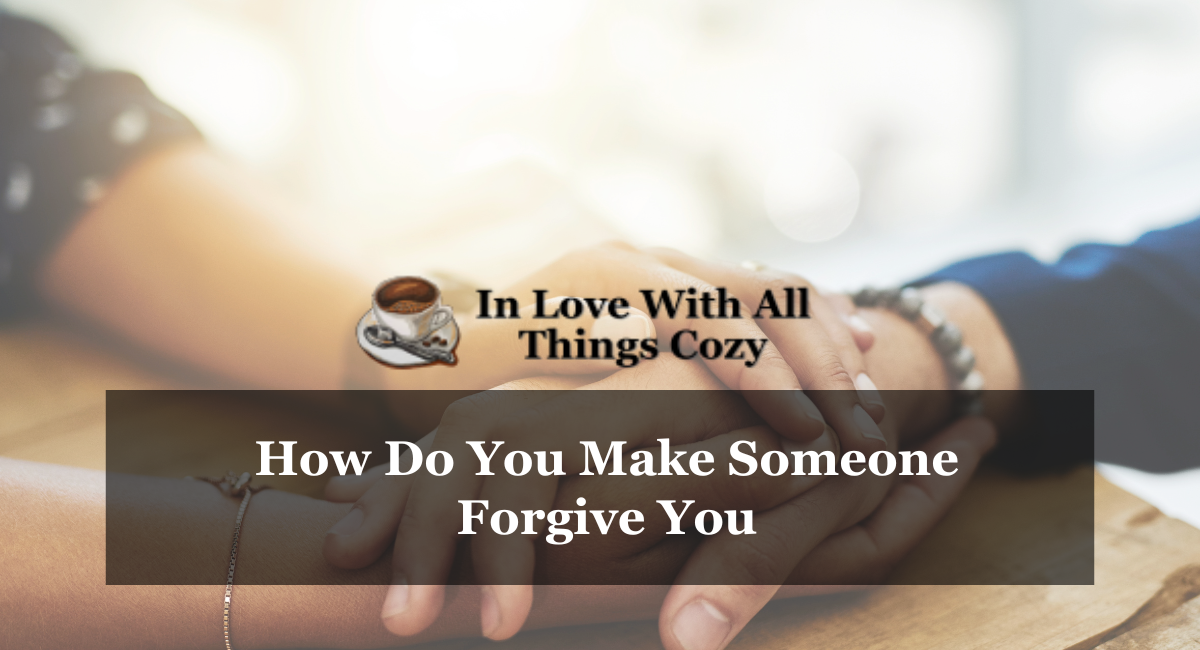We all mess up sometimes. Whether it’s a careless comment, a broken promise, or a major betrayal, hurting someone you care about can leave a deep wound. But what if you want to make things right? How do you navigate the path to forgiveness?
Fear not, fellow menders of fences! This blog delves into the art of seeking forgiveness, guiding you through the steps to rebuild trust and repair a broken relationship.
Understanding Forgiveness: It’s Not Just About You
Before diving in, let’s understand what forgiveness truly means. It’s not about simply making yourself feel better or getting the other person to “get over it.”
Forgiveness is a gift you offer the hurt person, a choice they make to release the negativity and move forward.
Here are some key aspects of forgiveness to consider:
It’s a Process: Forgiveness isn’t a light switch you can flip on or off. It’s a journey that takes time and effort, especially for deep hurts. Be patient and respect the pace at which the other person heals.
Not Everyone Forgives: The unfortunate truth is, forgiveness isn’t guaranteed. The hurt person may choose not to forgive, and that’s their right. Respect their decision and focus on what you can control – your own actions and genuine apology.
Focus on Empathy: Put yourself in the other person’s shoes. Try to understand how your actions impacted them and why they might be feeling hurt or angry. Empathy is the foundation of taking responsibility and rebuilding trust.
Taking Ownership: The First Step to Repair
The path to forgiveness starts with acknowledging your mistake. Here’s how to take ownership and show genuine remorse:
A Sincere Apology: Craft an apology that focuses on the other person’s feelings, not justifications for your actions. Say “I’m sorry” and explain how your actions hurt them. Be specific and avoid making excuses.
Accept Responsibility: Own up to your mistake. Don’t blame circumstances, bad luck, or the other person. Taking responsibility shows maturity and a willingness to learn from your mistakes.
Be Patient: Don’t expect immediate forgiveness. Give the other person time to process their emotions and consider your apology.
Demonstrating Change: Actions Speak Louder Than Words
Words are important, but actions speak volumes. Here’s how to show genuine remorse through your behavior:
Change Your Behavior: If your actions caused the hurt, show a genuine effort to change. This could involve setting boundaries, breaking bad habits, or demonstrating a renewed commitment to the relationship.
Respect Their Boundaries: The hurt person may need space or time to heal. Respect their boundaries and avoid pushing them for forgiveness or reconciliation.
Be Consistent: Change takes time and consistent effort. Don’t be discouraged if you slip up. The key is to show a sustained commitment to being a better friend, partner, or family member.
Moving Forward: Rebuilding Trust Takes Time
Earning back trust takes time and effort. Here’s how to nurture the healing process:
Open Communication: Maintain open and honest communication. Be willing to listen to the other person’s concerns and express your own feelings in a healthy way.
Patience and Understanding: Healing takes time. Be patient with the other person’s pace and understand that forgiveness doesn’t erase the hurt, but allows them to move forward.
Focus on the Present and Future: While acknowledging the past is important, don’t dwell on it. Focus on rebuilding a positive relationship in the present and building a future based on trust and respect.
Seeking Help When Needed: Don’t Go It Alone
The road to forgiveness can be challenging. Here’s when seeking support might be helpful:
Couples Counseling: If you’re trying to mend a romantic relationship, consider couples counseling. A therapist can provide a safe space for productive communication and guide you both through the process of healing and forgiveness.
Individual Therapy: If you’re struggling with guilt or self-forgiveness, consider individual therapy. A therapist can help you process your emotions, develop healthy coping mechanisms, and move forward in a positive way.
The Takeaway: Forgiveness is a Journey, Not a Destination
Mending a broken relationship takes time, effort, and genuine remorse.
There’s no guarantee of forgiveness, but by taking responsibility, demonstrating change, and fostering open communication, you increase the chances of reconciliation.
Remember, forgiveness is a gift you offer, a journey of healing for both of you. Here are some final thoughts:
Forgive Yourself: Holding onto guilt and self-blame can hinder the healing process. Forgive yourself for your mistake, learn from it, and focus on being a better person moving forward.
Focus on Controllables: You can’t control the other person’s emotions or their decision to forgive. Focus on what you can control – your own actions, your apology, and your commitment to change.
Acceptance is Key: Accept that the relationship might never be the same. Forgiveness doesn’t always mean reconciliation.
Sometimes, forgiveness allows you to let go of the hurt and move forward, even if the relationship takes a different form.
Celebrate Small Wins: The path to forgiveness is paved with small steps. Celebrate any progress, even if it’s a simple conversation or a shared moment of understanding. These moments signal a willingness to heal and rebuild trust.
Remember, forgiveness is a gift you offer, a testament to your strength and compassion.
By taking responsibility, demonstrating change, and fostering open communication, you pave the way for healing and potentially, a stronger relationship in the future.
So, breathe deep, take that first step towards reconciliation, and trust the journey of forgiveness to unfold.
